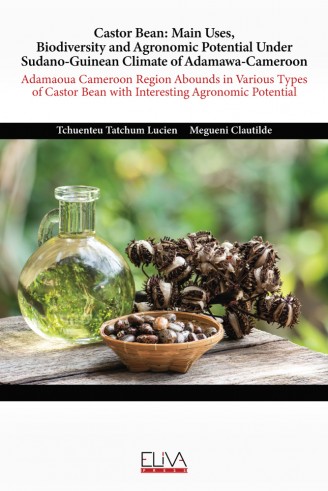
Castor Bean: Main Uses, Biodiversity and Agronomic Potential Under Sudano-Guinean Climate of Adamawa-Cameroon
$ 32.5
Description
Ricinus communis L. (castor bean) is an oilseed plant with multiple socio-economic benefits. The study aimed at determining main uses, describing, evaluating the carbon stock as well as carbon credits, geolocalizing castor bean accessions from Adamawa Cameroon and determining the agronomic parameters. The location of various sites for ethnobotanical survey was identified by random sampling techniques which consist in randomly selecting the various locations, overall sample consists of 1440 peoples; regarding the agronomic potentials of local accessions of Ricinus communis L., planting was done following a randomized block design with 03 replications and five treatments (05 castor bean accessions: Vina, Martap, Nyambaka, Bélel, Ndoutourou). Results showed that castor bean is used to treat several diseases and seeds oil is consumed. Four local castor bean accessions (Vina, Martap, Nyambaka and Bélel) were identified. Vina accession was the most widespread while Nyambaka and Bélel accessions were the least widespread in the study areas. Growing parameters and seeds yields were significantly different (p<0.05) between castor bean accessions. Nyambaka accession adapted better in our study area, thus suggesting that Nyambaka accession can be used in the program of implementation of castor bean as alternative crop for Cameroonian agriculture. Cameroonian castor bean accession was found to be symbiotic with arbuscular mycorrhizal fungi under Sudano-Guinean climate of Adamawa Cameroon ; these findings open opportunities for domestication and application of AMF for a sustainable castor bean productivity.
